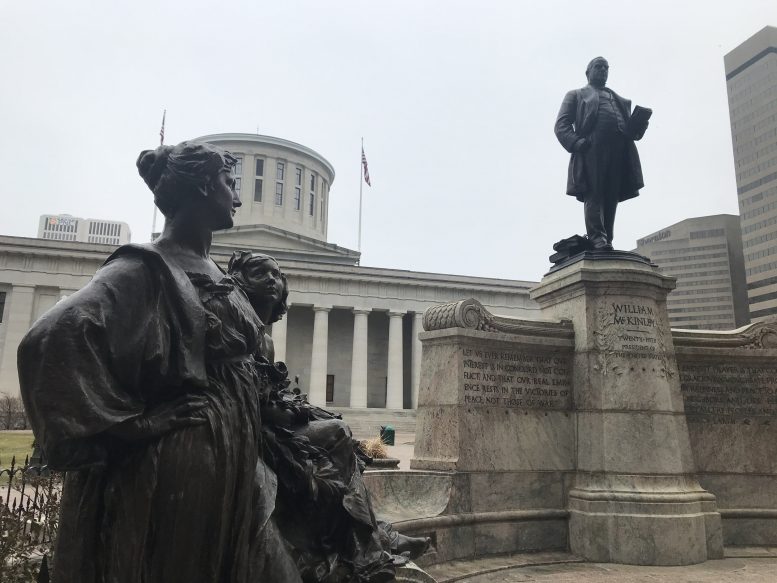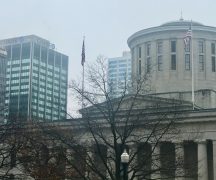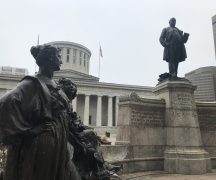Ohio Capital Journal
State Reps. Shane Wilkin and Jon Cross believe there is an inherent unfairness with the COVID-19 business shutdown order, and they’ve addressed that concern through proposing a new bill.
Wilkin, R-Lynchburg, and Cross, R-Kenton, introduced the Ohio Business Fairness Act on Thursday. It includes 32 cosponsors, all of whom are Republicans, including State Rep. Haraz Ghanbari (R-Perrysburg).

Their House Bill 621 concerns the shutdown order signed by Ohio Department of Health Director Dr. Amy Acton back in March, which forced the closure of businesses that were not considered to be “essential.”
Among the “essential” businesses are those that sell groceries, though some of these are “big box” stores which sell a wide variety of goods. Lawmakers have heard complaints from small business owners who wonder why their stores are closed while larger businesses can sell the same product because they are still open.Jon Cross@joncrossoh
Bill Drop Alert: #BusinessFairnessAct allowing small biz to reopen/operate if they sell similar products as essential big-box retail. Let’s get the government foot off the throat of small biz & give them a fighting chance to safely reopen and fairly compete! W/ 32+ Cosponsors!

36Twitter Ads info and privacySee Jon Cross’s other Tweets
“Our goal is, if you can go into let’s say a big box store and buy a locket for your wife or your mom this Mother’s Day, you should be able to go into your local jewelry store and do the same thing,” Wilkin said, “provided they can meet the safety standards that anybody else is meeting.”
Wilkin and Cross have made clear the bill is meant to address Ohio’s current crisis, though it is worded more broadly to affect health department shutdown orders both presently and in the future.

HB 621 states that businesses required to “cease or limit operations” as a response to a pandemic, epidemic or bioterrorism event would be allowed to continue operations under certain circumstances. One such circumstance would be if they sell a product that is also sold at a business allowed (by the order) to stay open.
Cross has been a vocal critic of the COVID-19 response from Acton and Gov. Mike DeWine, writing on Facebook that he strongly opposes the recent decision to extend the stay-at-home order.
The bill may not have much relevance in regards to COVID-19, as DeWine has already announced retail stores can reopen beginning May 12. The Ohio Senate is not convening again until May 13, meaning the bill could not theoretically be enacted until after businesses are already open again.
***
Also in Ohio Capital Journal:
Commentary: Public health orders have been litigated many times. They’re constitutional.
Demonstrations against lockdown orders are like nothing we’ve experienced before, with anti-government activists, extremists and gun-toting militia men converging on state capitals. But the protests in Columbus and elsewhere also are part of a familiar pattern in America when government uses its broad powers to protect the public health.
Seat-belt laws, anti-smoking laws and mandatory vaccinations all stirred passionate opposition at one time or another. A hallmark of these dust-ups is proclamations that public health orders are illegal or in violation of constitutional rights.
These well-worn assertions about unfettered personal liberty are visible as ever today, displayed on hand-made signs, shouted from sidewalks and spread through media channels. They are rarely challenged publicly in the heat of the coronavirus pandemic. They should be, because they’re wrong. READ MORE





